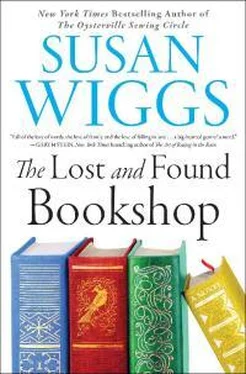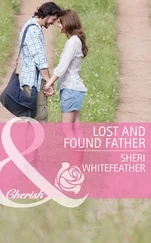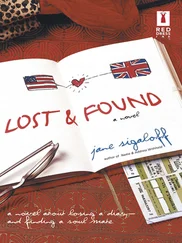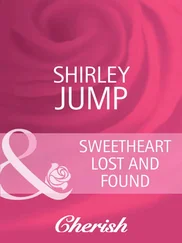“They haven’t embraced the minimalist aesthetic,” Trevor whispered. They were shown to a suite designated “The Parlour.”
Natalie couldn’t help saying “‘Step into my parlor,’” and Trevor finished, “‘said the spider to the fly.’”
She got the giggles as he put his arm around her and caught her against his chest.
Still giggling, she looked up at him, and they kissed. “Listen,” he said, whispering into her ear, “I’d like to do more than kiss you. I’d like to make out with you all night long. But not unless you say. I promise I’ll be a gentleman. I want to get this right, Natalie.”
“You don’t strike me as a person who makes many mistakes.”
“I love that you just said that, and I hate that you’re dead wrong.”
She took a step back. “You’re too good to be true. You know that, right?”
“I know that—wrong,” he said.
“Bertie thinks you’re acting.”
“Acting like what?”
“Like . . . an actor.”
“I’m not too good to be true. And I’m sure as hell not an actor. I’ve made my share of mistakes, and I’ve had more than my share of luck. And right now, I’m just a guy. A guy who likes you a lot. Hope you’re okay with that.”
* * *
“We flipped a coin for the big bed,” Natalie told Cleo the next day. On Sundays, the bookshop opened at eleven in the morning, and the two of them were getting set up. Trevor had dropped her off early so she could look in on her grandfather. She’d kissed Trevor goodbye, a lingering kiss, filled with yearning—and confusion. As in, why was she holding back from going all in with this amazing man?
The moment Cleo had arrived, she’d pounced, wanting details.
“What? Flipped a coin?” Cleo gave her shoulder a little shove. “Oh no you didn’t.”
Natalie laughed, setting up a stack of books Trevor had autographed the day before. “Yes, I did. It was a high four-poster bed with way too many pillows. Very pink. Very fluffy. The bed in the other room was more like a daybed. Not as fussy and a lot smaller. That’s where he slept, because I won the toss.”
“But . . . Trevor Dashwood.”
“I know . The whole evening was incredible. Last night . . . we weren’t there yet, you know? We were both pretty tipsy and way too full from dinner. It’s early days, Cleo. We’re new to each other.”
“That’s the best time to sleep together,” Cleo pointed out. “To see if it’s a thing.”
“I’ll keep that in mind,” said Natalie. She ducked into the back office to get some inventory and bookkeeping done. Thanks to Trevor’s signing, this would be the best month in the history of the shop. It was, she hoped, the start of better times. She studied the loan consolidation documents, wondering if her mother had understood what she had signed. Natalie had appointments with the bank and with a tax counselor to set up a plan to resolve what she could. She didn’t want to press Grandy about selling everything and moving, but unless a miracle fell from the sky, that was where she was headed. Now there was a tiny glimmer of hope, and she studied that glimmer until her head ached.
A package arrived, and she welcomed the diversion. Colleen’s journals had been professionally archived, and the historical society was cataloguing the originals. The parcel contained facsimile copies, put in order, for Natalie and her grandfather to read.
Finding the war medals had been intriguing. Discovering the ancient vase was ridiculously exciting. But the cache of Colleen’s letters and drawings—that could be life-changing, a window into the history of their family.
Natalie would probably never know whether or not her mother had realized their significance or how they had come to be hidden away, apparently unread and undisturbed, for generations.
Needing a break from the twenty-first century, she went to find her grandfather. He was outside in the tiny rear garden in his wicker lounge chair, a Mackinaw blanket tucked around him, his hands in fingerless gloves turning the pages of his book. He couldn’t seem to shake the symptoms that had his care team so puzzled, especially the fatigue and poor appetite.
Seeing him amid the yellow leaves and berry-colored hips of the spent roses, and the fading hollyhocks gone to seed along the garden wall, filled her heart. In that moment, she understood why her mother had made so many seemingly reckless financial decisions, all with the goal of taking care of this beloved old man.
“What are you reading?” she asked him.
“A lovely book.” He held it up so she could see— Being Mortal by Atul Gawande.
The book was a perennial bestseller in the shop, a meditation on living with joy even at the end of life. Even when medical interventions had run their course. “And you’re finding it lovely? How so?”
“Because it’s honest. I do know—sometimes, most of the time—what has been happening to me.”
She sat at the end of the chaise and rested her hands on the blanket. “Oh, Grandy. Is it . . . are you afraid?”
He hesitated. “I am sometimes, when the confusion is so very intense and I don’t know what is real and what isn’t.”
“I’m sorry. How can I help?”
“Being here, in my place in the world—that is the help I need.” He gestured around the garden. “This is where I played as a little boy. Where I lived with Blythe and made a swing for you when you were a little girl. Where I used to sit and hold hands with May Lin. And now it’s where I spend time with a book, enjoying the autumn sunshine.” He covered her hand with his. “Help me remember the important things,” he said. “I don’t want to forget all the love in my life.”
“If you do, I’ll remember for you.” She tried to speak lightly, forcing the words past the ache in her throat. “And now, there is this.” She picked up the shipping box and opened the lid. “The scanned copies are back. I thought we could read Colleen’s story together.”
“I’d like that,” he said. “You’ll have to do the reading, though. I find the handwriting hard to decipher.”
“So do I,” she said. “But I’ll give it a shot. The archivist put things in what he thought was chronological order.”
He put up his feet and settled back on the wicker chaise. “Let’s begin, then.”
Part Five
Try to be conspicuously accurate in everything, pictures as well as text. Truth is not only stranger than fiction, it is more interesting.
—William Randolph Hearst
22
My name is Colleen O’Rourke. I am fifteen years old, and all alone in this world. This is a record of my days, as I live them. In the year of our Lord 1887, Mam lost another babe after Michaelmas, and Declan took his vows, and Da came home from the ropeworks with ill news. There was no more work for him. The great starvation was upon us. It was determined that we would go to America—Da and Mam, and the two little ones, Tristan and Liam. Da’s brotherhood, Clan na Gael, had a group in San Francisco called the Knights of the Red Branch. That was our destination.
Such tales we heard, this land of milk and honey, much of it nonsense as I am fast discovering.
Thanks to Da’s skill as a deckhand, he traded work for passage to New York City on the Mary Dare, and we made the crossing, a treacherous business to be sure.
We were under way when the ship’s fever took them all. Mam breathed her last on a Sunday. Because of the contagion, the fallen were laid to rest at sea, a harsh business that repeated itself day in and day out amongst the passengers. In a shroud of fog, she was shipped overboard like a sack of ballast, sinking into the gray-green hillocks of waves that undulated like the wind through a field of barley.
Читать дальше












